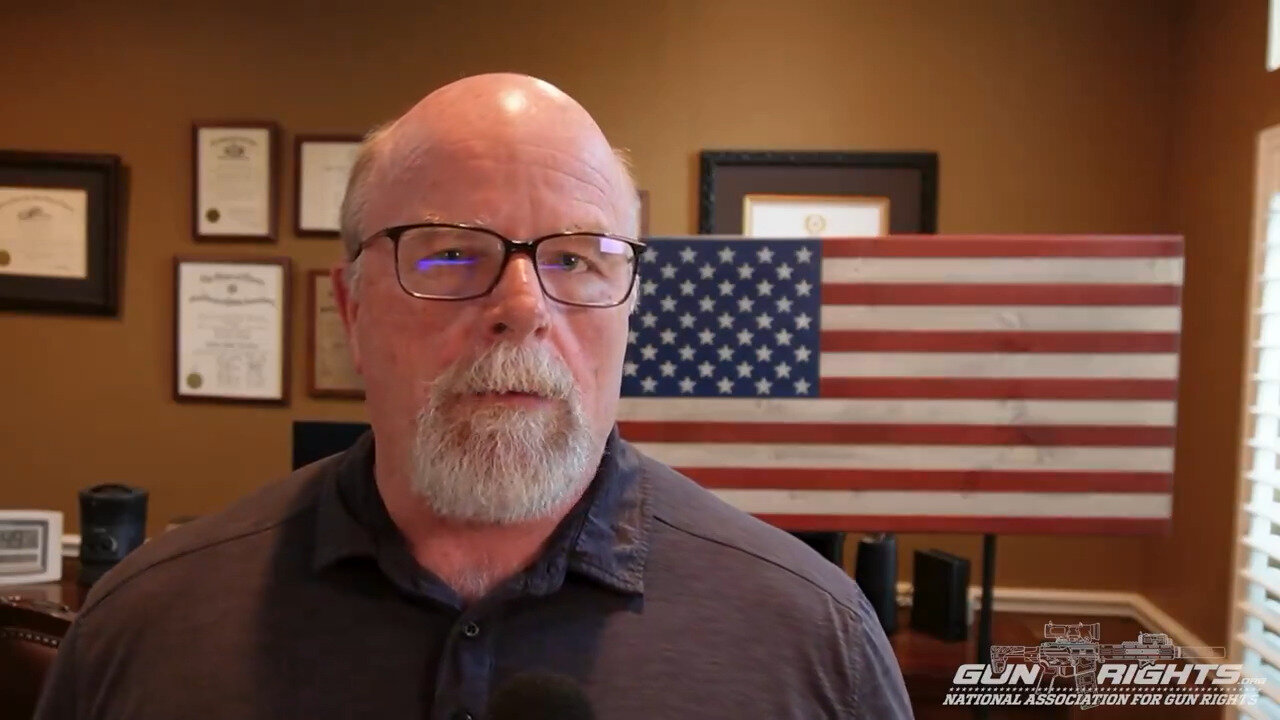Premium Only Content

Why Was Clarence Thomas The Lone Dissenter In A Recent Second Amendment Ruling?
Posted • June 24, 2024: National Association for Gun Rights @NatlGunRights: “Chief Legal Counsel for NAGR, Barry Arrington, gives a breakdown on the Rahimi decision.” -- Justice Clarence Thomas was the only dissenter in the case. Here's some of what he wrote in his dissenting opinion about the meaning of the Second Amendment: The Government’s proposed justification is also far too general. Nearly all firearm regulations can be cast as preventing “irresponsible” or “unfit” persons from accessing firearms. In addition, to argue that a law limiting access to firearms is justified by the fact that the regulated groups should not have access to firearms is a logical merry-go round. As the Court has made clear, such overly broad judgments cannot suffice. In Bruen, New York claimed it could effectively ban public carry because “the island of Manhattan [is] a ‘sensitive place.’”
The Court should continue to rebuff the Government’s attempts to rewrite the Second Amendment and the Court’s precedents interpreting it. The Government’s “law-abiding, dangerous citizen” theory is also antithetical to our constitutional structure. At bottom, its test stems from the idea that the Second Amendment points to general principles, not a historically grounded right. And, it asserts that one of those general principles is that Congress can disarm anyone it deems “dangerous, irresponsible, or otherwise unfit to possess arms.” This approach is wrong as a matter of constitutional interpretation, and it undermines the very purpose and function of the Second Amendment. The Second Amendment recognizes a pre-existing right and that right was “enshrined with the scope” it was “understood to have when the people adopted [the Amendment].” Heller, 554 U. S., at 634–635.
Only a subsequent constitutional amendment can alter the Second Amendment’s terms, the Government’s “law-abiding, dangerous citizen” test—and indeed any similar, principle-based approach— would hollow out the Second Amendment of any substance. Congress could impose any firearm regulation so long as it targets “unfit” persons. And, of course, Congress would also dictate what “unfit” means and who qualifies. The historical understanding of the Second Amendment right would be irrelevant. In fact, the Government posits that Congress could enact a law that the Founders explicitly rejected. At base, whether a person could keep, bear, or even possess firearms would be Congress’s policy choice under the Government’s test. That would be the direct inverse of the Founders’ and ratifying public’s intent. Instead of a substantive right guaranteed to every individual against Congress, we would have a right controlled by Congress.
This case is not about whether States can disarm people who threaten others. States have a ready mechanism for disarming anyone who uses a firearm to threaten physical violence: criminal prosecution. Most States, including Texas, classify aggravated assault as a felony, punishable by up to 20 years’ imprisonment. Assuming C.M.’s allegations could be proved, Texas could have convicted and imprisoned Rahimi for every one of his alleged acts. Thus, the question before us is not whether Rahimi and others like him can be disarmed consistent with the Second Amendment. Instead, the question is whether the Government can strip the Second Amendment right of anyone subject to a protective order—even if he has never been accused or convicted of a crime. It cannot. The Court and Government do not point to a single historical law revoking a citizen’s Second Amendment right based on possible interpersonal violence.
The Government has not borne its burden to prove that §922(g)(8) is consistent with the Second Amendment’s text and historical understanding. The Framers and ratifying public understood “that the right to keep and bear arms was essential to the preservation of liberty.” Yet, in the interest of ensuring the Government can regulate one subset of society, today’s decision puts at risk the Second Amendment rights of many more. I respectfully dissent. (…)
• More at: Townhall - Why Was Clarence Thomas the Lone Dissenter in a Recent Second Amendment Ruling?
https://townhall.com/tipsheet/katiepavlich/2024/06/24/this-is-why-clarence-thomas-was-the-only-dissenter-in-a-recent-second-amendment-case-n2640875
-
 1:38
1:38
NewsVids
7 hours agoGOP Rep Connects Dots For CNN Host Waiting For 'Biden Crime Family' Proof (Cut To Commercial!)
971 -
 7:55:51
7:55:51
Dr Disrespect
11 hours ago🔴LIVE - DR DISRESPECT - WARZONE - SHOTTY BOYS ATTACK
174K24 -
 1:30:23
1:30:23
Twins Pod
10 hours agoHe Went From MARCHING With BLM To Shaking Hands With TRUMP! | Twins Pod - Episode 45 - Amir Odom
90.9K23 -
 1:02:30
1:02:30
Exploring With Nug
11 hours ago $1.32 earned2 Duck Hunters Missing After Kayak Capsizes!
27.8K2 -
 46:48
46:48
Mally_Mouse
5 hours agoLet's Hang!! -- Opening Christmas gifts from YOU!
44.6K -
 44:55
44:55
Athlete & Artist Show
20 days ago $1.83 earnedNHL 4 Nations Snubs, Was Hawk Tuah Coin A Scam?
48K -
 33:47
33:47
Stephen Gardner
10 hours ago🔥Pentagon Whistleblower UNLEASHES on Biden and Obama!
103K172 -
 2:20:30
2:20:30
The Dilley Show
12 hours ago $25.78 earnedRoger Stone in Studio plus Q&A Friday! w/Author Brenden Dilley 12/27/2024
86.6K19 -
 1:57:02
1:57:02
The Charlie Kirk Show
10 hours agoThe Great H-1B Battle + AMA | Lomez | 12.27.24
169K230 -
 11:39
11:39
Russell Brand
1 day agoWhat You're Not Being Told About The Syrian War
171K254